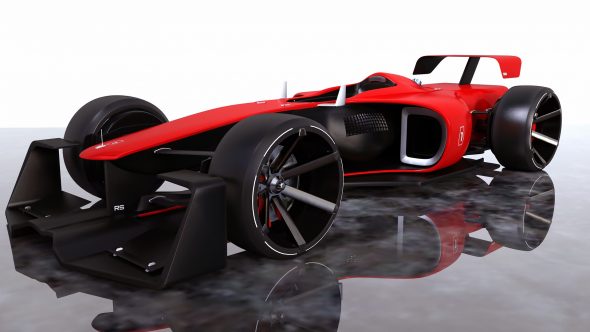New engineering organization building electric car, opportunities
By David Staudacher
Tesla has the Model S, Nissan offers the Leaf and Chevy makes the Bolt. Soon, UIC will have an electric car, too.
A new student organization in the College of Engineering called Vehicle Electronics and System Engineering (VESE) is offering students an opportunity to be pioneers as they start designing and building a Formula One electric race car to compete in an SAE-sanctioned competition in Lincoln, Nebraska, in May.
“The beauty of our car is that it is based on electrical systems, but there are mechanical components that have to be built like any other race car,” said Amru Qutub, a student in electrical and computer engineering and the president of VESE. “It is very interdisciplinary, but the electrical and software parts will be critical to this vehicle.”
“This will be an exciting opportunity for students of all skill levels to push themselves,” added Alexander Bulger, a mechanical and industrial engineering student and vice president of VESE. “The team will be fast paced and developing its own system. The mechanical side won’t be a problem.”
Apart from confidence, the team has gathered a core of 25 members who are working on different vehicle subsystems.
“We have a lot students who have interned and co-oped in the automotive industry,” said Qutub, who gained experience learning the methodology used in the automotive industry at C&H Industrial. “I, myself, did a co-op in autonomous vehicles and have a very good background in electromechanical systems integration and GPS systems. Our peers have worked at the same company or other companies that dealt with the automotive industry and automotive communication protocols. And that is key for our success here.”
According to the two leaders, there is still plenty of space and work for more students to join the organization, and they are encouraging experienced and new students to come along for the ride.
“There’s room for more people to join and work on the subsystems they are interested in developing,” Qutub said. “There are new students who don’t know this industry and that’s fine, because everyone has to start somewhere; we’re open to them and having them learn.”
“We are not worried about people not knowing things. It’s our job as veteran members to pass that knowledge on to them and teach them how to do it right before they develop any bad habits,” Bulger said. “This will also trickle down to their study habits and real-world experiences.”
As a startup organization, the students will do more than learn how to put a car together and understand how it functions. They will be immersed in the development process. It will include research, modeling and drawing of the parts, and validating and manufacturing them. Then team members get to put the components on the car for a real-world validation before taking it to a competition.
“It’s a great opportunity to become a leader and expand their engineering knowledge,” said Bulger, who has experience building race cars with another organization. “You will do the whole product development cycle and not that many people get to do that. It’s a very unique and new experience, and I think it will be fun.”
Along with hands-on experience, members will benefit from relationship building with their peers and professionals at seminars and events.
“Everyone involved will build connections too,” Bulger said. “There will be networking opportunities at the competitions. All the major automotive manufacturers and companies like SpaceX, Blue Origin, Tesla are there actively recruiting because they know you have gone above and beyond what most students do. You don’t get that type of experience anywhere else.”
VESE wants to take the student organization to a new level. It’s a forward thinking group with a focus on emerging technology. The automotive and many industries are going into Guidance Navigation Controls. And the team members recognize this industry shift. To address this issue, the team has a goal of eventually build an autonomous vehicle, with infrared sensors that will detect cones and be able to go through a race track without a driver.
Learn more about the student organization at VESE.

